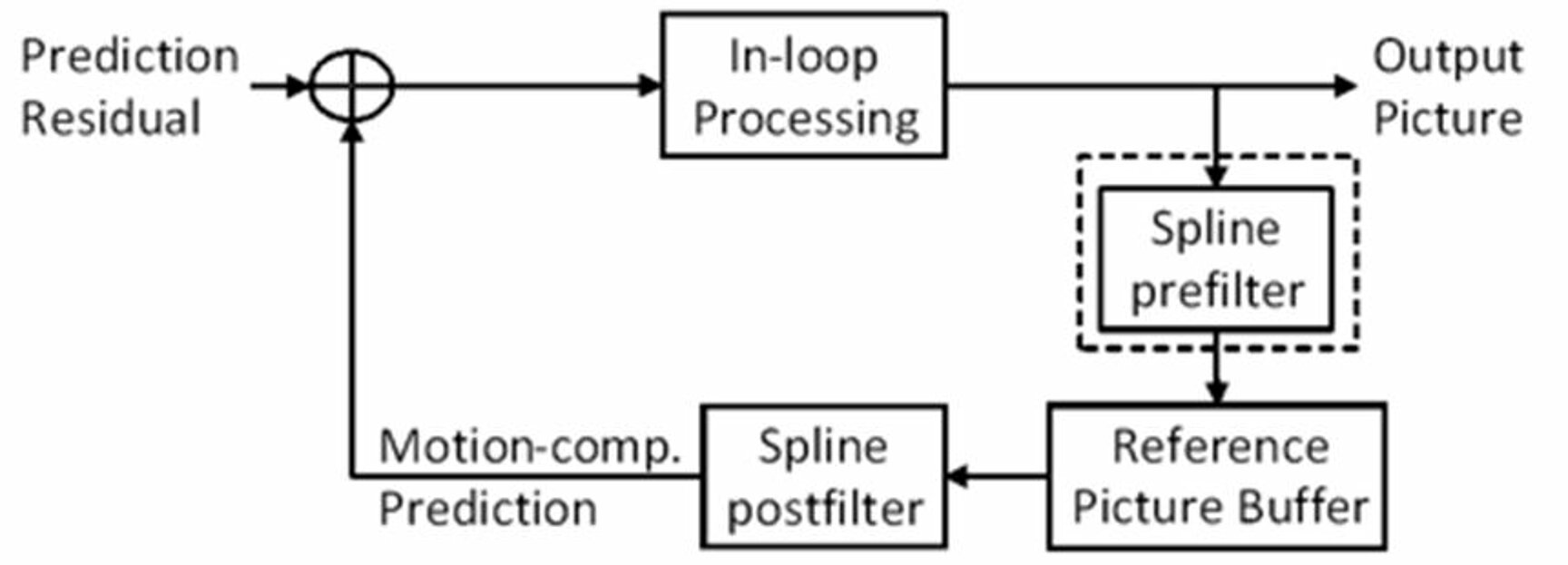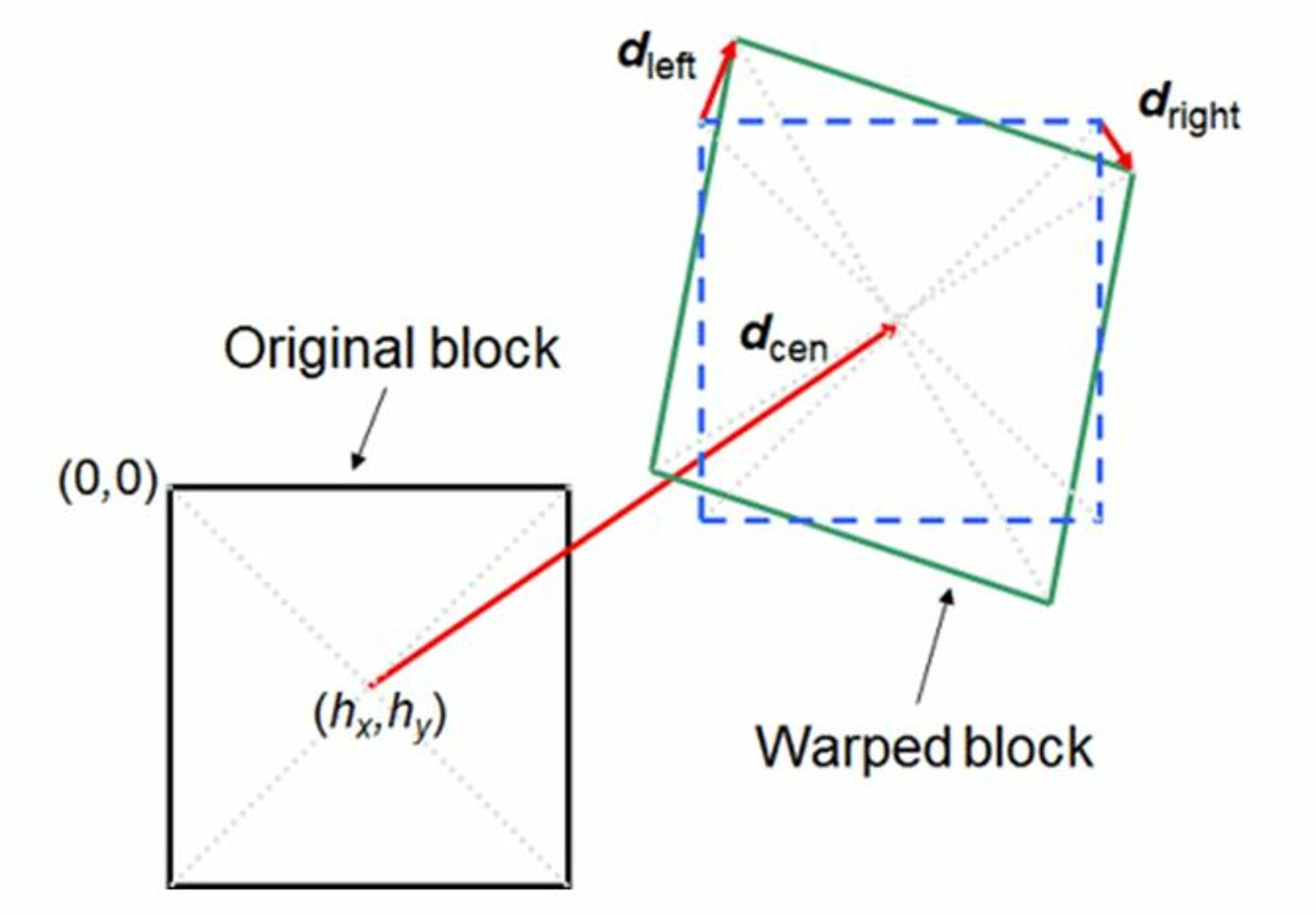Motion compensated prediction (MCP) is a core component of hybird video coding algorithms like H.264/AVC and its successor H.265/HEVC. The priciple of MCP is prediciting the current image from already reconstructed images and the prediction error is coded along with the motion information, i.e., reference picture and motion vector. MCP using fractional sample accurate displacements is an established technique in video coding. An ideal filter for fractional displacement of a reference signal retains all frequencies and introduces constant phase shift for all frequencies, however, due to various effects in signal acquisition and noise, the efficiency of MCP is limited.

For spline-based MCP, the output pictures are first converted into spline coefficients using a prefilter and stored in the reference picture buffer. Then, during the MCP stage, fractional displacements are generated using interpolation filters with short support. Compared to conventional MCP, bit rate savings of about 3% are achieved for spline based MCP.

Another approach for improving MCP is conditional motion vector refinement. By increasing the number of MCP filters for supporting a higher sub-sample accuracy together with a selective motion search strategy, bit rate savings of about 1% are achieved for HEVC.

Publications
- Haricharan Lakshman, Heiko Schwarz, Thierry Blu, and Thomas Wiegand, Generalized interpolation for motion compensated prediction, IEEE International Conference on Image Processing (ICIP 2011), pp.1213-1216, 11-14 Sept. 2011.
- Haricharan Lakshman, Heiko Schwarz, and Thomas Wiegand, Generalized Interpolation-Based Fractional Sample Motion Compensation, IEEE Transactions on Circuits and Systems for Video Technology, vol.23, no.3, pp.455-466, March 2013.
- Haricharan Lakshman, Christian Rudat, Matthias Albrecht, Heiko Schwarz, Detlev Marpe, and Thomas Wiegand, Conditional motion vector refinement for improved prediction, Picture Coding Symposium (PCS 2012), pp.497-500, 7-9 May 2012.
- Haricharan Lakshman, Heiko Schwarz, and Thomas Wiegand, Adaptive motion model selection using a cubic spline based estimation framework, IEEE International Conference on Image Processing (ICIP 2010), pp.805-808, 26-29 Sept. 2010.